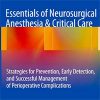Breath-holding as a Novel Approach to COVID-19 Risk Stratification
ccforum.biomedcentral.comDespite considerable progress, it remains unclear why some patients admitted for COVID-19 develop adverse outcomes while others recover spontaneously. Clues may lie with the predisposition to hypoxemia or unexpected absence of dyspnea (‘silent hypoxemia’) in some patients who later develop respiratory failure.
Using a recently-validated breath-holding technique, we sought to test the hypothesis that gas exchange and ventilatory control deficits observed at admission are associated with subsequent adverse COVID-19 outcomes (composite primary outcome: non-invasive ventilatory support, intensive care admission, or death).
Breath-holding offers a novel method to identify patients with high risk of respiratory failure in COVID-19.
Greater breath-hold induced desaturation (gas exchange deficit) and greater breath-holding tolerance (ventilatory control deficit) may be independent harbingers of progression to severe disease.

















